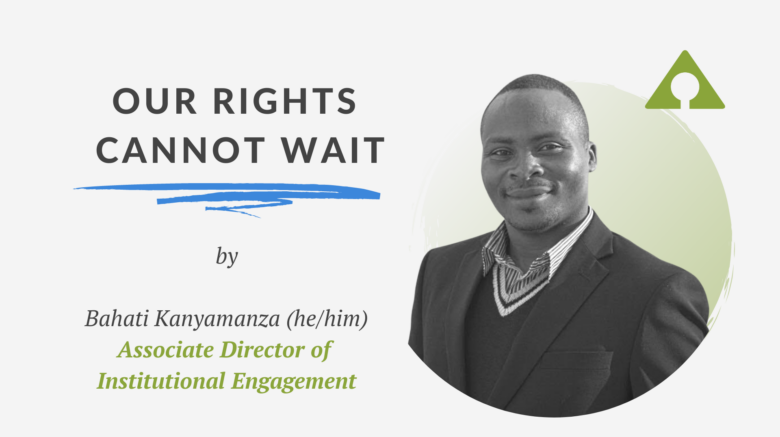
The durable solutions on offer for refugees are leaving millions behind. Here’s what we can do differently.
Dear Friend,
I want to let you in on something. The refugee response sector and the large institutions that fund it are coming to a pretty uncomfortable realization: despite billions in funding, the status quo is not working—there are more forcibly displaced people than ever without access to basic rights.
Thankfully, they’re open to some new perspectives, which is where I come in.
My name is Bahati, and my role at Asylum Access is to engage with large institutions like the United Nations, the World Bank and governments about what we refugees have been saying all along: we cannot wait for our rights—refugees must have access to their rights and freedoms wherever they are.
This rights-based solution and the work that I do to make it happen is so core to my heart. I have been a refugee for over 22 years, and so each right that we at Asylum Access are committed to fighting for is one that I have personally been denied at some point in my life. I was forced to miss school because I could not leave my refugee camp in Uganda and I experienced the painful injustice of losing my father to malaria due to his lack of access to healthcare. My story is just one of the millions of forcibly displaced people around the world who are still being denied the rights to work, move freely, attend school, and access health services, and I carry that with me always.
Right now, the World Bank has a big opportunity. For the first time, they’re providing financing to countries that host significant populations of refugees. We are working with them to use their influence with these countries to bring about positive change for refugee rights, and to make sure refugee communities and local civil society have their voices heard. This is just the start—there are so many similar opportunities with the UN, governments and international civil society.
This is why I believe in Asylum Access. This organization understands that advocating for refugee human rights wherever they are is the only way refugees can access services and live without fear of being returned to the same conditions they fled. This rights-based approach is far more durable than what is currently being presented.
Together, we can push for global systemic change in how we respond to forced displacement. I invite you to join us in this effort and help make refugee rights a reality for millions worldwide.
With appreciation,
Associate Director of Institutional Engagement
Asylum Access

